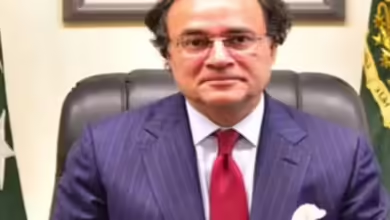Street gangs use mass rape and violence as means of controlling Haiti. How Did Nation Turn Into Earth’s Hell?
The prime minister of Haiti was last spotted negotiating his return to a violent country run by thugs with heavy weapons while in Puerto Rico. The world is left to wonder if Haiti will entirely devolve into chaos or whether some kind of order will be restored, with his fate hanging in the balance and the country’s circumstances becoming worse by the day.

WHAT CAN BE FOUND IN HAITI?
It’s easy to place the blame for this most recent violent outburst in the first free black nation in the West on historical deforestation, colonialism’s legacy, poverty, and intervention from the US and Europe.
The Associated Press was informed by a number of analysts that the primary immediate reason is relatively recent and is the growing reliance of Haitian rulers on street gangs.
For many years, Haiti lacked both a well-trained and capable national police force and a permanent army.
In a report released on Wednesday, UN Secretary-General Antonio Guterres said that “gang-related violence has continued to increase in intensity and brutality, with gangs expanding their control within and beyond Port-au-Prince.”
He said, “Gangs continue to use sexual violence, including collective rape, to terrorize populations under their control.”
American and United Nations interventions have come and gone. In the absence of a strong legacy of integrity in democratic institutions, Haitian authorities have resorted to deploying armed citizens as instruments of control.
Gangs are now taking over the state because it has become so weak.
Leaders of gangs ostensibly conduct press conferences. And a lot of people think of them as potential participants in talks about the future of the nation.
Jimmy “Barbecue” Cherizier, a rebel from Haiti, is seldom seen without his weapon and extra rounds of ammo.
The former police officer says he wants to remove the elite of the crisis-torn nation and is the leader of one of the formidable gangs tearing across Haiti.
Barbecue, 46, has gained notoriety as the leader of a gang coalition known as “the G9 family” and as the public face of the violent instability gripping the Caribbean nation, which is now mired in a serious political and humanitarian crisis.
The more than 1,000 members of the alliance are charged with murder, robbery, extortion, rape, targeted assassinations, drug trafficking, and abduction. The majority of the members are former police officers, security guards, and homeless youth.
Barbecue’s role in the 2018 Saline massacre, which happened in a capital slum of the same name, was also brought up by the UN sanctions specialists.
Haiti: How did it get here?
Following President Jean-Bertrand Aristide’s overthrow by the military in the 1990s, an embargo was implemented. The author of “Notes From the Last Testament: The Struggle for Haiti” and “Haiti Will Not Perish: A Recent History,” Michael Deibert, said that the embargo and the nation’s isolation outside decimated the tiny middle class in the nation.
According to Deibert, a World Bank-sponsored structural adjustment that resulted in the importation of rice from the US and destroyed rural agricultural society occurred after a UN force supported by the US drove out the leaders of the coup in 1994.
Boys in Port-au-Prince who were unemployed flocked there and formed gangs. They were first used by politicians as an inexpensive armed wing. The priest-turned-politician Aristide became well-known for his use of criminals.
Aristide urged the criminals to emerge from the shantytowns when police officer Guy Philippe launched an attempted coup strike on the National Palace in December 2001, according to Deibert.
Deibert, who was there, said, “It wasn’t the police defending their government’s Palais Nacional.” “Thousands of armed civilians were involved.”
“Now that these politicians have been working with these gangs for years, it really got to them in the face,” he said.
HOW HAITI WAS AFFECTED BY WEAK FOREIGN INTERVENTION?
In the face of MINUSTAH, a UN force formed in 2004, several gangs withdrew.
According to Robert Fatton, a professor of government and foreign affairs at the University of Virginia, René Preval took a tough stance against the gangs, offering them the option to “disarm or be killed.” Preval was the only democratically elected president to win and serve two terms in a nation known for political unrest.
He said that after his administration, the leaders were, at best, lenient with the gangs and, at worst, associated with them.
Every significant figure in Haitian culture, according to Fatton, belonged to a gang. He acknowledged that the present state of affairs is not unusual, but it has become worse more quickly.
“Over the last three years, the gangs have begun to acquire more independence. He compared them to a “mini-Mafia state” and continued, “And now they are a power unto themselves.”
“A vital threshold has been achieved in the gangs’ autonomy. That explains why they may now impose requirements on the government itself, according to Fatton.
“A monster was produced by those who established the gangs. Even though the monster may not be in complete control right now, he said that it is still capable of obstructing any type of resolution.
HURT HAITI: HOW DOES GANG MONEY WORK?
Along with many Haitian officials and businesspeople, the gangs profit from an unlawful combination of “taxes” obtained via drug and weapon smuggling, kidnappings, and extortion, according to Fatton.
He said, “There are numerous criminal networks in the area.”
According to Francois Pierre-Louis, a political science professor at Queens College at the City University of New York, after the Preval era, gangs, politicians, and businesspeople took advantage of every dollar they could.
He said, “It was a free-for-all for gangs, drugs, and the nation, essentially, turned into a state that trafficked in drugs.” “In essence, the gangs gained power, and not only that, but they also enjoyed political and state protection.”







